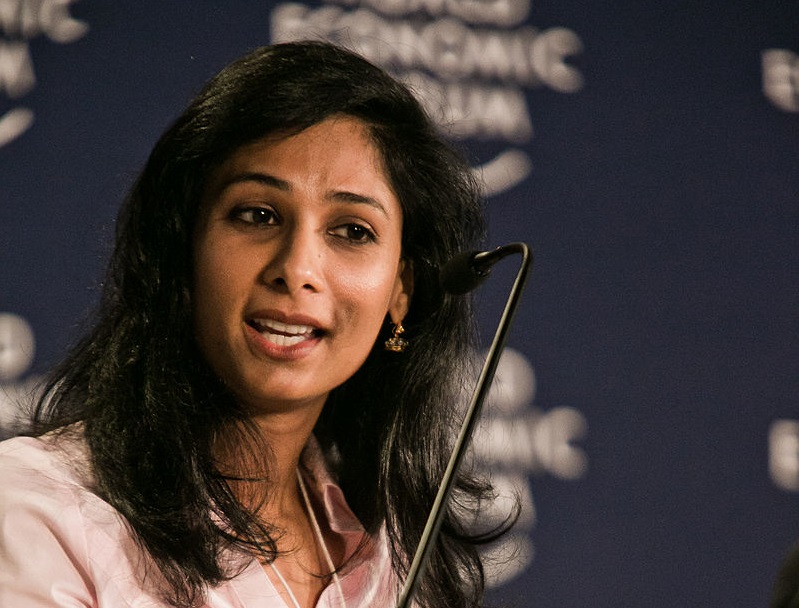Indian American economist Gita Gopinath is returning to Harvard University, bringing with her extensive experience in global finance. Gopinath previously made history as the first deputy managing director of the International Monetary Fund (IMF), a role she has held since January 21, 2022. Before that, she served as the IMF’s chief economist from 2019 to 2022.
“It has been an incredible close to seven years at the IMF.” Gopinath said in a video released on X. “I came to the IMF in 2019 which gave me about a year to learn the job.”
Gopinath further mentioned, “and then in 2020, the pandemic struck. And ever since there’s been global upheaval. You had the war in Ukraine, inflation shocks, geopolitical tensions, big changes in the global trading system. And through all this, I saw the IMF at its very best: deeply committed to helping its members, and doing so in an agile manner.”
READ: India born Gita Gopinath to become IMF number two (December 3, 2021)
She expresses her gratitude towards IMF, saying, “it’s been an extraordinary privilege to have been the Chief Economist of the IMF and then the First Deputy Managing Director.” Reflecting on her experience at IMF, Gopinath stated, “I gained incredible insights, got to work with brilliant colleagues.”
“And I am looking forward to taking this back to Havard, where I’ll teach the next generation of economists and also invest in research to come up with solutions to build greater resilience in the global economy.” Gopinath added.
Gopinath’s academic journey laid the foundation for her remarkable career. She earned her M.A. in economics from the University of Washington in 1996 and completed her Ph.D. at Princeton University in 2001 with a dissertation titled “Three Essays on International Capital Flows: A Search Theoretic Approach,” under the guidance of noted economists Ben Bernanke, Kenneth Rogoff, and Pierre-Olivier Gourinchas. Her work earned her the prestigious Woodrow Wilson Fellowship Research Award.
READ: Gita Gopinath to leave IMF to rejoin Harvard (July 24, 2025)
In 2005, she joined Harvard University’s economics department, where she served as the John Zwanstra Professor of International Studies and Economics until 2022. While at Harvard, she co-authored important research papers, including The Macroeconomics of Border Taxes and Dominant Currency Paradigm, which helped establish her as a leading voice in international economics.
Her work in economics and global finance has won her wide recognition. The Financial Times named her one of the “25 Most Influential Women of the Year,” the International Economic Association honored her as a Schumpeter-Haberler Distinguished Fellow, and the Agricultural & Applied Economics Association presented her with the John Kenneth Galbraith Award. Time magazine highlighted her among “Women Who Broke Major Barriers to Become Firsts,” and Bloomberg listed her as one of the “50 People Who Defined 2019.” In 2021, the Carnegie Corporation recognized her as a “Great Immigrant, Great American,” celebrating both her professional achievements and her journey as a renowned Indian American economist.
